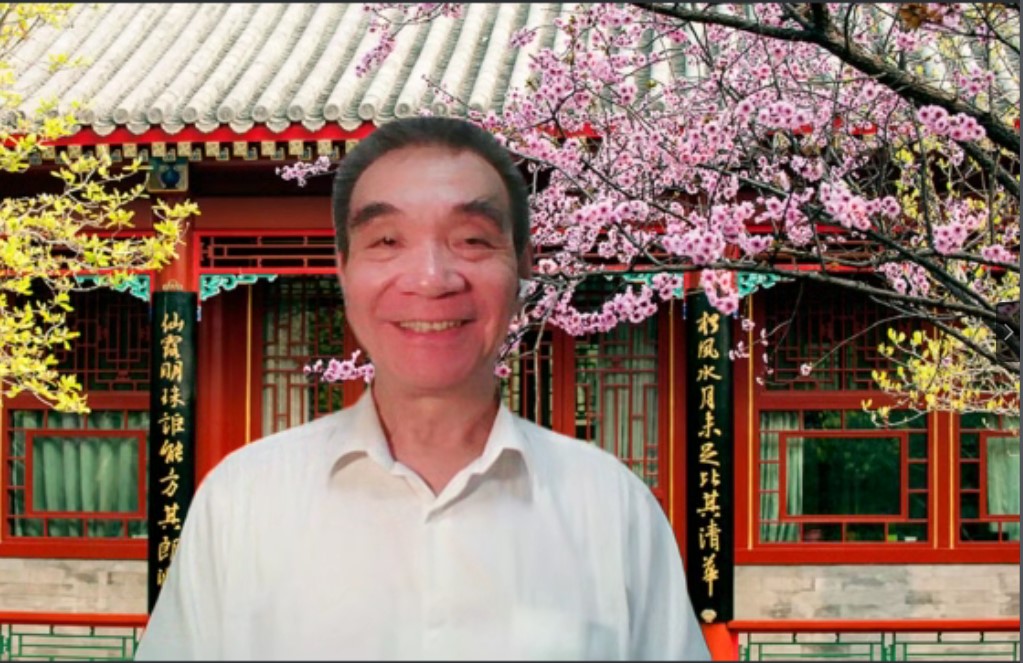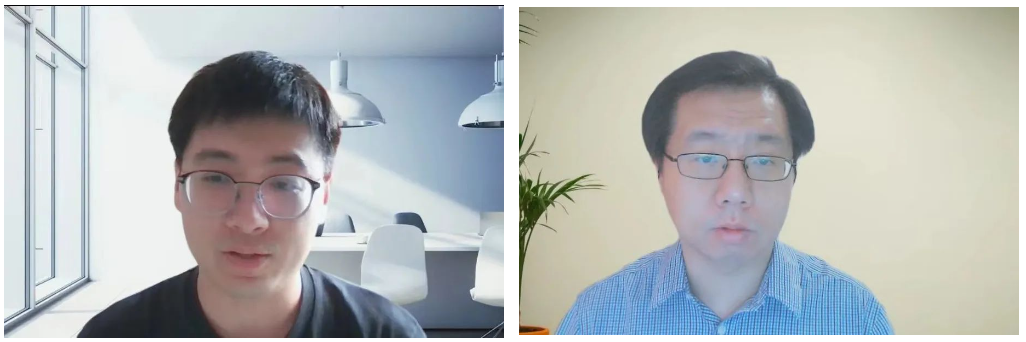Students﹀
9th NSE Summer School Was Successfully Held
2022-07-01
The Institute of New Structural Economics at Peking University (INSE) held its 9th Summer School online on June 27th, 2022, introducing the theoretical framework, academic research and political practices of New Structural Economics (NSE) to 40 outstanding undergraduate students from universities across China. Among them, 34 students were from the universities where the governing unit, intention unit and observation unit of the New Structural Economics Research Consortium were located.

Yong Wang, Academic Deputy Dean of INSE, chaired the opening ceremony on June 27th morning. Professor Justin Yifu Lin, Dean of INSE, delivered the welcome speech to participants, in which he noted that the 21st century is the era of Chinese economists, as well as the time of the emergence of economics masters in China. The magnificent economic progress and national rejuvenation would transfer the global economic research center to China in the middle of this century, offering a golden opportunity to Chinese scholars. He held that theoretical innovation was required for seizing the opportunity of leading world economics, and NSE, the independent theoretical innovation developed from China’s and other developing countries’ experience, would be beneficial to the emergence of new thoughts and theories of the time. Therefore, Professor Lin encouraged NSE summer school students to explore more and endeavor to pioneer in NSE realm.

After a brief introduction of the faculty and its members, the morning ceremony came to the part of theme lecture. Professor Justin Yifu Lin expounded the development direction, theoretical foundation and theoretical perspective of NSE within the topic of "The Significance of NSE's Structural Revolution in Modern Economics". The lecture ended up with a Q&A in which Professor Lin answered the questions raised by students in detail.

Yong Wang, Academic Deputy Dean, and Shenzhe Jiang, Assistant Professor of INSE, explained the curriculum of the PhD program. Bo Hu, Assistant Professor of INSE, gave several suggestions on mathematical preparation and introduced his research on state-owned enterprises reform from NSE's perspective.

On the afternoon of June 27, INSE faculty introduced sub-fields of NSE to students in five sessions. Yong Wang, Academic Deputy Dean of INSE, opened the Macro and Growth section with an introduction to industrial upgrading and economic growth under NSE view from three aspects, respectively analytical framework, literature review and research outlook. Chunzan Wu, Assistant Professor of INSE, lectured on "More Unequal Income but Less Progressive Taxation", and Lijun Zhu, Assistant Professor of INSE, analyzed the making of China's wealth gap from a dynamic structural perspective. Shenzhe Jiang, Assistant Professor of INSE, shared his study of infrastructure from NSE perspective, and Junjie Xia, Visiting Assistant Professor of INSE, discussed the meaning and use of congruence in NSE empirical research.

In Finance and Development session, Jiajun Xu, Executive Deputy Dean of INSE, introduced the disciplinary connotation, analytical framework and research outlook of New Structural Finance.

The following session was about Trade and Region, in which Assistant Professors Xin Wang, Mingzhi Xu and Wei You delivered keynote speeches entitled "Latent Comparative Advantage and Actual Comparative Advantage: The Role of State", "Measuring Comparative Advantage" and "City and Regional Economics from NSE Perspective".

Jie Zheng, Postdoctoral Researcher of INSE, introduced the development of New Structural Environmental Economics in the session on NSE's application in other fields. Then, in Principles of NSE session, Caihui Fu, Director of the Research Center for Textbooks, Case Studies and Flagship Reports of INSE, elaborated on NSE Axiology based on the history of economic thought.

After the comprehensive introduction of sub-fields of NSE, Qiuyun Zhao, Director of Domestic Development and Cooperation Department, explained the construction of the think tank under NSE theories, and Jia Yu, Director of International Development and Cooperation Department, shared various cases of oversea practice with GIFF framework and triangular cooperation. After the day's lectures, the NSE summer school came to an end with a lively discussion of academic ideas between participants and current PhD students of INSE.


